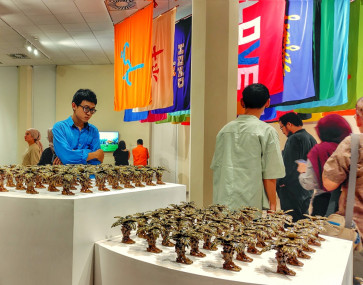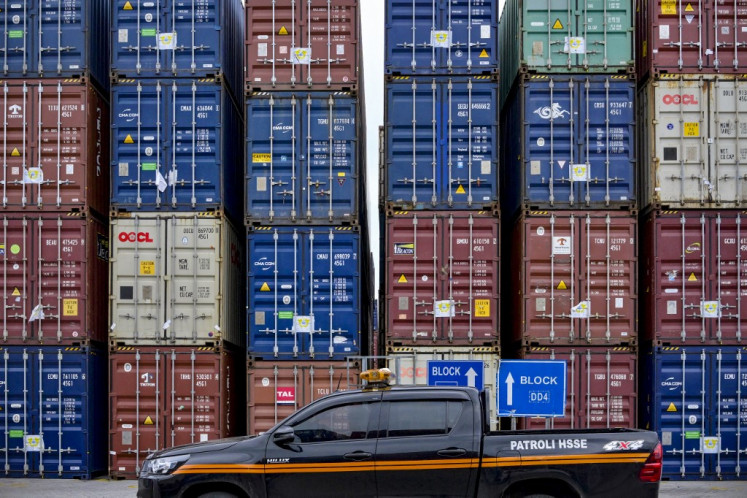Popular Reads
Top Results
Can't find what you're looking for?
View all search resultsPopular Reads
Top Results
Can't find what you're looking for?
View all search resultsIndonesia languishes in intellectual property index
Indonesia has been placed near the bottom of a global index that assesses countries on their readiness to enforce intellectual property (IP) rights and combat copyright infringements, well behind its closest neighbors Singapore and Malaysia
Change text size
Gift Premium Articles
to Anyone
I
ndonesia has been placed near the bottom of a global index that assesses countries on their readiness to enforce intellectual property (IP) rights and combat copyright infringements, well behind its closest neighbors Singapore and Malaysia.
Indonesia ranked 45th of 50 countries assessed by the United States Chamber of Commerce Global Innovation Policy Center (GIPC) in the Intellectual Property Index, which evaluates IP infrastructure and ranks countries based on 45 indicators that are critical for innovation-based economies that require strong support for patents, trademarks, copyrights and the protection of trade secrets.
Kelly Anderson, the GIPC’s director of international policy, said that while Indonesia had scored low in the index, there had been some positive signs in the last five years that the country was headed in the right direction.
“Indonesia actually has one of the strongest mechanisms in the region for combating copyright infringement, and there’s also a number of mechanisms that the government [needs] to coordinate with intellectual property [enforcers] to make sure that all [...] parts of the government that have a hand in IP policy are talking to each other,” Anderson told The Jakarta Post in a phone interview on Wednesday.
The index, first published in February, highlighted that the 2016 Patents Law had many troublesome provisions, such as restrictions on patentability for biopharmaceuticals.
“What we see in the report is [that] one can get a patent in Indonesia, […] but there are some restrictions on what is considered patentable,” she said.
The United States government, through its embassy in Indonesia, previously expressed its objection to Article 20 of the Patent Law, which stipulates that all patent right holders must have their patented products “made or processed” in Indonesia.
In July of last year, Law and Human Rights Minister Yasonna Laoly issued a ministerial regulation that allows patent holders to apply to “postpone” the production or use of the patent in Indonesia for up to five years as a stopgap measure in response to the complaint.
In contrast to Indonesia’s situation, Anderson said there was an increase in investments in innovation policy in the rest of Southeast Asia, with Singapore and Malaysia standing out in the index at 11th and 24th place, respectively.
“[Singapore] has made continued investments to introduce policies that will [speed up] innovation, [and there is] also some of that in Malaysia as well — they have a very strong IP office there — and so we hope that this signals a real change in investing in innovation policies across Southeast Asia,” she said.
Earlier this week, the government announced that 2019 was the year for registering industrial design rights as part of an effort to encourage more patent filings. A senior law ministry official recently said that Indonesia only registered 4,000 patents annually.










